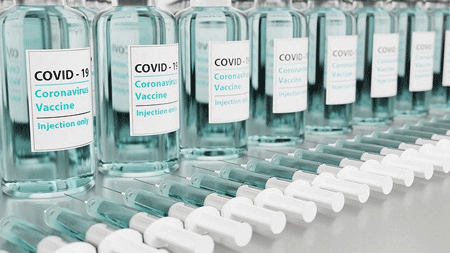



In the third of our blog series on using supplements to treat Chronic Fatigue Syndrome and/or Fibromyalgia, Dr. Courtney Craig talks about testing and her approach
An Interview with Dr. Courtney Craig
You noted that you’d spent thousands of dollars on supplements before you found the approach that worked for you. How long did it take you to do that?
I first sought an integrative medicine doctor when I was 18 years old and was given high dose B-vitamins. Before that, I never considered supplementation as a viable option for symptom management because I didn’t have a clue about the illness. Over the course of the next 7 years I tried various supplements in a rather shotgun fashion that never made the slightest dent in my fatigue. This was long before I understood the importance of supplement quality and dosing. It wasn’t until I started with a doctor who used pharmaceutical-grade supplements, under the auspices of Dr. Teitelbaum’s protocol that I started to notice differences.
You graduated from the University of Bridgeport’s Human Nutrition Institute. How much time did you devote to learning about supplements and nutrition?
My training was very different than traditional dietetics education or that of an herbalist. Instead my graduate work was heavily entrenched in biochemistry and clinical application. I had the good fortunate of learning clinical biochemistry under Richard Lord, PhD, who is the former scientific director of Genova/Metametrix labs (now retired). His seminal work Laboratory Evaluation for Integrative and Functional Medicine hones in deeply on how to adequately assess a board spectrum of biochemical pathways and focused interventions. I recommend every clinician obtain a copy.
[Functional medicine isIn general what kinds of tests do you recommend?

A soon to be published ebook will detail tests Dr. Craig asserts help to illuminate ME/CFS and provide treatment options.
Most people already have a large collection of lab results, so I first look at those and try to find missing pieces. Some practitioners do not assess reliable markers (B12, iron status, etc) or miss potentially valuable tests that would rule out overlapping illnesses (Hashimoto’s, Hemochromatosis, Celiac, H. pylori, etc).
I am releasing an eBook guide in the coming weeks that explains in detail many of the laboratory tests that I think are commonly left out in basic CFS or fibromyalgia assessment. Excessive testing not only costs a lot of money but also can create unnecessary fear and uncertainty in patients. I’ve been there.
My primary approach is to create an individualized treatment plan based on the patient’s unique biochemistry and genomics so I will order specialty testing to determine what specific nutrients are needed. This may include genetic testing such as 23andMe, methylation pathway panels (Health Diagnostics), blood amino acids, or urine organic acids (Metametrix). Stool testing is also a valuable insight where indicated to detect dysbiosis, malabsorption, or parasites (Doctor’s Data).
How much do these tests cost?
Basic lab testing is covered by insurance and occasionally specialty testing from Metametrix or Doctor’s Data is reimbursable. Genetic testing from 23andMe is the most affordable option at $99, and never needs to be repeated. The raw data is easily analyzed using free tools online. Methylation pathway testing runs about $350, and testing for other markers can range anywhere from $200-500.
How long does it take to tell if supplements are making a difference?
High potency, quality supplements are very important to me. I personally use, continuously or on a trial basis, every supplement I recommend. Frequently effects are felt immediately after 1 or 2 days while other types of supplements have less dramatic effects and are only truly appreciated once stopped. Some core supplements should be taken daily indefinitely, but others are only recommended for short courses such as specialized probiotics, immunomodulators, and natural anti-microbials.
Can you say a bit more about ‘core supplements’ for ME/CFS. Recognizing that ME/CFS is a diverse disorder can you identify some of the core supplements that people with ME/CFS end up taking on your program?
The core supplements I refer to are those that I would recommend for everyone regardless of health status. I strongly believe these nutrients are good insurance policies for overall health. Even with a “perfect” diet, it is virtually impossible to obtain all our nutrients from foods in this modern world. This notion is reaffirmed by many researchers including Bruce Ames, PhD, who I consider the modern day Linus Pauling. His decades of research support regular supplementation with a multi-vitamin / multi-mineral in order to optimize micronutrients and enzymatic pathways, thus preventing degenerative diseases of aging. Vitamin D is also an essential nutrient given the epidemic of deficiency worldwide due to reduced sun exposure. Finally, I recommend fish oils universally, as DHA/EPA are vital for cardiovascular and brain health. These core supplements are the best researched in general, and play important roles in healthy aging and many aspects of CFS pathophysiology.
Do you incorporate any so-called brain stimulants or Nootropics such as bacopa, piracetam or gingko biloba into your treatment protocols?
Nootropics certainly play a key role in brain function and I do recommend them to improve persistent cognitive fog. They are thought to work in a similar fashion as drugs such as Modafinil or LDN, which some CFS patients are prescribed. Piracetams and others of the –acetam class are difficult to obtain due in part to the risk of hepatotoxicity.
I like to use a product from Designs for Health called Brain Vitale that contains a combination of safer nootropics including glycerophosphocholine (GPC), gingko, phosphoditylserine (PS) and acetyl-L-carnitine. Nootropics such as these have erased my aphasia (inability to form words) completely.
Do you use D-Ribose much? Do you find it effective?
I first tried D-Ribose when I started Dr. Teitelbaum’s protocol but I don’t use it on a regular basis now. I know many people experience great benefit with D-ribose, and there is no doubt that it is a vital energy source for the mitochondria. From my experience, I prefer instead a different approach to mitochondrial support with intermittent fasting, a high fat diet, and lipid replacement therapy.
In one of your blogs you talk about Lithium’s possible role in the methylation cycle and ME/CFS. I have never heard of Lithium mentioned in connection with ME/CFS before. Can you give us another example of something else that might help in ME/CFS that most people have never heard of?
I’m currently looking into bacteriophage therapy for treatment resistant dysbiosis. Bacteriophages make up the human virome as innocuous viruses that feed on bacteria. Phage therapy has been used for decades but was displaced when penicillin was discovered. Now there is renewed interest in phage therapy due to the rise in antibiotic resistance. I think this may be a valuable new intervention for those who continue to struggle with chronic infections in the gut that do not resolve with pharmaceutical or nutraceutical interventions. The research, however, is still several years off.
- Check out “Getting to Know Bacteriophages“
It seems like new nutrients and new supplement possibilities turn up all the time. Recently I’ve been in touch with two people who benefited greatly from Moringa oleifera and Empower Plus Q96 – two things I’d never heard of. How do you keep up with them?
There are many new and exciting products coming on the market thanks to advances in technology. I stay abreast of new products through communication with several companies that I follow closely and interact with at seminars/webinars. An added benefit of being a healthcare provider is getting to try many sample products. Over the years I’ve noticed a vast improvement in the quality of supplements with added attention to purity, labeling, and sourcing due to concerns over GMO’s, among other things. There is also a new focus on delivery–with acid-resistant probiotics and liposomal formulations that dramatically improve bioavailability. Both patients and doctors are putting pressure on supplement companies to manufacture the highest quality products possible and produce research to back them up.
Besides supplements what other treatment approaches do you use?
I start with dietary recommendations; since nutrients obtained from food are better utilized by our cells than supplements. I recommend a nutrient-dense diet that could be called a modified Paleo diet—no grains, no dairy, no sugar. In general, I universally recommend low carbohydrate eating that is high in vegetables and quality fats and moderate in protein. In certain individuals I will recommend intermittent fasting or periods of ketogenic eating—both of which have direct effects on the immune system, the gut, and inflammatory markers. I wrote more about the physiological effects of this type of diet in a 2-part blog post found here
Health Rising’s Supplements in ME/CFS and FM Series
- Pt. I: Five Supplement Mistakes You Don’t Want to Make with Fibromyalgia or Chronic Fatigue Syndrome
- Pt. II: Creating a Supplement Program for Fibromyalgia and ME/CFS That Works
Health Rising is not affiliated with Dr. Craig in any manner
——————————————
Dr. Courtney Craig was first diagnosed with CFS as a teen in 1998, and recovered in 2010 utilizing both conventional and integrative medicine. Trained as a doctor of chiropractic and nutritionist, she now provides nutrition consulting and blogs about what she’s learned on her website.
Check out her Health Rising blogs here.
___________________________________
The Keep Health Rising…Rising Recurring Donation Drive!
Please consider painlessly supporting Health Rising’s efforts to bring you the latest information on ME/CFS and Fibromyalgia with a $5 or more recurring monthly donation. You won’t notice it but I promise we will! Just a couple days left in our donation drive. Thanks for your support!













Thanks for all the info Courtney. So happy to hear about someone who has their life back on track.
My daughter has been unwell since the age of 13 .. Almost 6years ago… Unfortunately can’t convince her to give up dairy as she has has 6 years of much other ‘dietary deprivation’ due to coeliac and CFS (as a result of severe viral infection).
Are all her supplements a waste of time if she continues the dairy intake?
Could you elaborate on ‘lipid replacement therapy’?
Hopefully when you get your ebook up there will be notification on this site.
Thanks
Linda
This brings up another excellent point, Linda. In fact I should have mentioned this in Question 1 above!
Another reason I think supplements never worked for me in the beginning was because of very poor gut health. If there is inadequate digestion, leakiness, or bacterial overgrowth in the gut, supplements will be less utilized. Emulsified, sublingual, or liquid preparations may be an option, but I’d advise restoring gut issues before loading up on mitochondrial or methylation supports.
As usual, work with your doctor to see how best to assess and improve gut function.
Dr. C
Excellent information. Working with a knowledgeable practitioner for a customized approach is the only solution…otherwise there would be a cure by now. I’m looking forward to the book!
I think many of us have made supplement companies quite rich. I think we need to regularly re-evaluate what we are using. Some supps have feelable results such as nootropics etc but many dont have feelable results such as antioxidants but we take them because of research we have read and effects are seen in the long term, although this is really difficult to judge.
Theres enough research in cfs/me to show that inflammation and oxidative stress are high, so this makes anti-oxidants seem like a good group of supps to take.
Dr. Craig,
Which Multi vitamin and probiotic do you recommend and take yourself? Also, How much Fish oil and D on a daily basis? What are your thoughts on Resveratol, Tumeric and Acetyl L Carnatine on a daily basis if you have CFS/Fibro?
Thanks for the great article! Ill be looking for your e-book soon!
Hi Carrie,
You’ll find the answer to some of those questions on my blog.
Best.
Hello Dr. Craig,
I’m wondering what you recommend for patients who have salicylate intolerance (or say some other type of food intolerance) and cannot take herbs or any supplements that may have some sort of spice or high-salicylate/phenol content — like turmeric, curcumin, resveratol, bromelain, papain, and almost all flavonoids and antioxidants?
Do you have a protocol for those of us with salicylate intolerance that has helped some of your patients?
Hi Kelly,
There’s a lot of uncertainly surrounding these types of sensitivities. It could be due to genomics or it could be due to imbalances in the gut leading to almost an allergic-type reaction to certain compounds. The term “allergic dysbiosis” has been coined by others in the field and I’d address gut issues and see if it improves the intolerance.
Dr. C
I’ve been considering the gut angle too, as there seem to be some probiotic strains and definitely some soil-based organisms that break down phenols and salicylates.
And I wonder if eating very high salicylate foods for years, unknowingly of course, might deplete some of the bacteria that are needed to help properly metabolize these ubiquitous compounds.
Thanks for your reply.
DHA gives me severe brain fog, and EPA/fish oil cause widespread, massive inflammation, angina, and elevated liver enzymes in me. So much for “universal” recommendations.
Everyone needs to find out for themselves what works for them and what doesn’t. And while we can get ideas of supplements to try from what other people have taken or suggest, there is no guarantee that those will work the same in everybody.
Even universal recommendations of a multi-vitamin/multi-mineral are irresponsible within the ME/CFS population, in my opinion, as people often have vitamin and mineral imbalances that would be exacerbated by taking more of any particular substance — especially true in the case of minerals, where often there are direct antagonistic effects between minerals (zinc depleting copper, etc.).
And as for the other “universal recommendation” of vitamin D, while most people arguably could use more vitamin D, and while traditional suggested requirements could be too conservative, vitamin D toxicity nevertheless is a real phenomenon. So please don’t everyone rush out and start taking vitamin D without first talking to your doctor and having your vit D status assessed.
I’m interested in the recommendation for a diet of low carbohydrates but lots of vegetables. On a slimming diet I tried a few years ago, I read about all the carbohydrates in vegetables, so they had to be limited. Could you please explain further? Are you saying that carbohydrates from vegetables are okay? What about fruit?
Hi Diane,
Non-starchy fruits & vegetables are a great choice for a low carb diet. Even moderate starchy fruits & vegetable intake is OK on a low carb diet because of their fiber content they have little effect on blood sugar and promote good gut health. Dr. Atkins’ protocol never considered the microbiome!
Dr. C
What does one do if one is a vegetarian. I refuse, even though I have had very severe CFS and was 99% bedridden for 17 years, and although I know now at my age now of 69 I will never get completely over CFS, to eat meat again. I cannot sacrifice an animal for my life or well being. I would die rather than have anything animal in me and know I would refuse medical treatment where they use animal “parts” even if it meant my imminent death. I’m sure all other vegetarians don’t have CFS so what is this all about?
I’m not sure I really believe in what you are saying however I do say if it worked for you then that’s fantastic. With my daughter who had it for years just moving to a different house without salt damp in it got her better. From day one of being out of the last house she began to improve and is now 100% well. Sadly it did not work for me.
I do believe very strongly that a lot of different things work for different people and I don’t think there is any one way to good health for CFS. I think more doctors, like mine have, need to do more research into what it is that goes wrong in the body and how to make it better. Not looking specificially at diet. Although of course a good nutritious diet is essential for any person’s real well being.
Hi Jane,
All would agree a nutritious diet is essential for health, but many have trouble defining what that really means. I can respect your decision to not eat animal products. You might look into the work of Dr. Terry Wahls (www.terrywahls.com) who was also a vegetarian for many years, and has developed a vegan/vegetarian version of her protocol. A nutrient-dense diet that is good for mitochondria and cell function CAN be achieved if religious, cultural, or other beliefs prohibit animal foods.
Best,
Dr. C